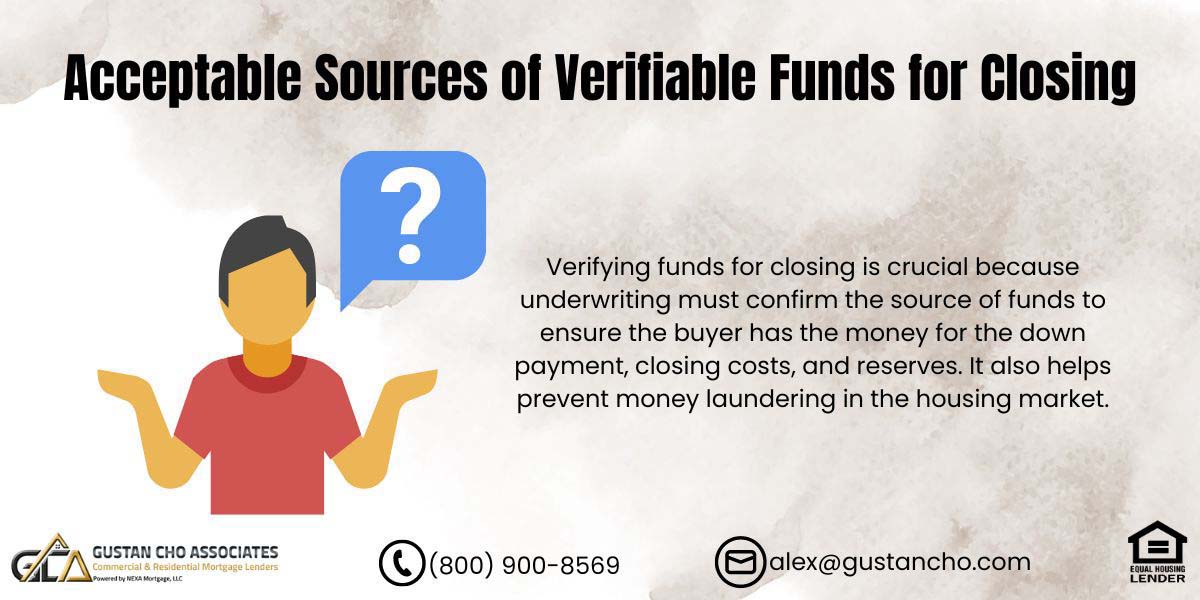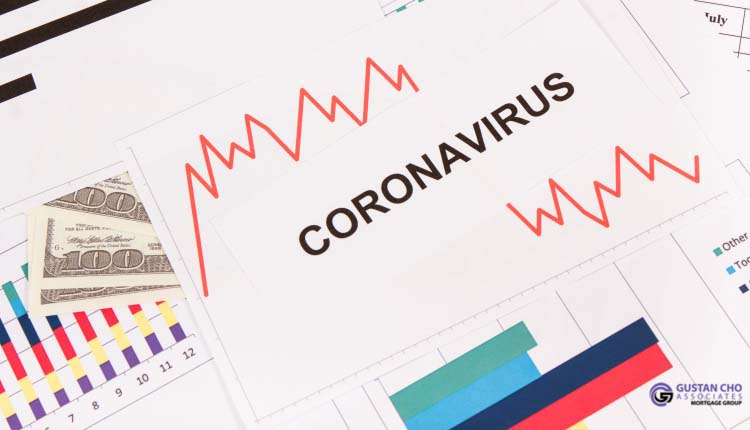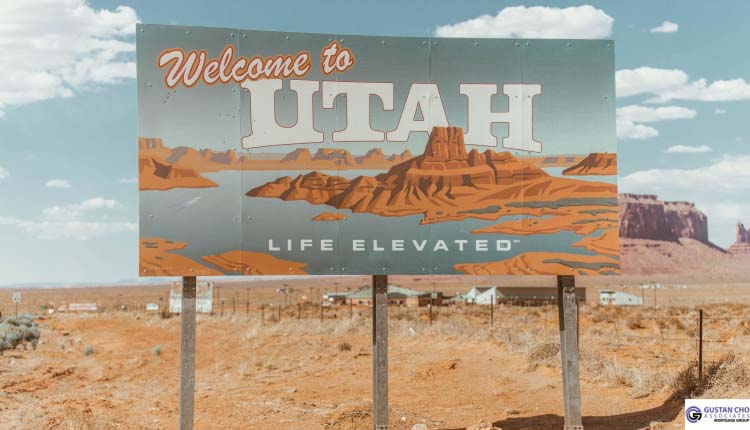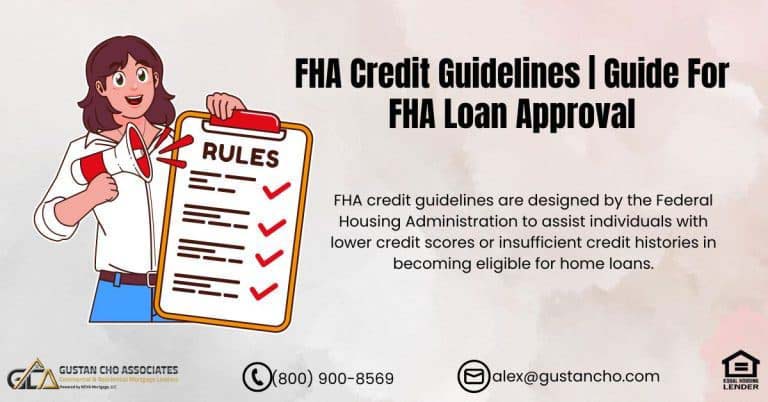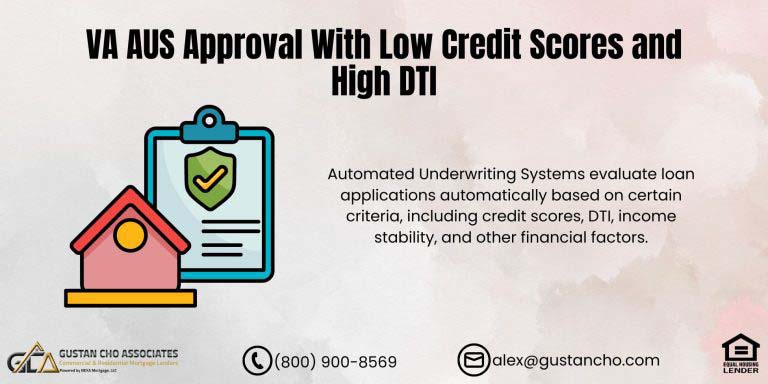In this blog, we will cover and discuss the acceptable sources of verifiable funds for closing. With the majority of qualified (QM) mortgage products being overseen by the federal government, there are very strict rules and regulations on what type of funds are acceptable for use when buying or refinancing a home.
Funds that are allowed to be utilized for the down payment, closing cost, reserves, and cash to close in a mortgage transaction are called verifiable funds. In this blog, we will detail where acceptable sources of verifiable funds for closing may come from. We will cover funds that will not be acceptable sources of verifiable funds for closing.
We will also explain how to apply for a mortgage loan with Gustan Cho Associates.
The Importance of Checking For Acceptable Sources of Verifiable Funds for Closing
Having confirmed acceptable sources of verifiable funds for closing is an important part of the mortgage process. This is because underwriting must verify the source of funds for a very specific reason. The main reason is to show you have the money for the down payment, closing costs, and reserves.
Another main reason is to limit money laundering in the housing market. Many borrowers may have cash in a safe at home, often referred to as mattress money, which usually cannot be used in a mortgage transaction. An underwriter must verify the source of the funds.
Wondering Which Funds Can Be Used for Closing?
Not all money in your bank account qualifies. Learn what sources lenders will accept.
How Do You Verify Funds for Closing?
Typically, underwriting will need to verify acceptable sources of verifiable funds for closing have been in a bank account or other financial account for a minimum of 60 days prior to closing. An underwriter will request the full bank statement or other financial statements for the most recent two months leading up to your pre-approval/ mortgage transaction.
Since the underwriter may only go back two full months, any cash that was deposited before that, will not come into question.
All Income and Asset Verification Documents Need to be Complete
It is important to understand that the underwriter will need all pages of your bank statement, even if the last page is left blank intentionally. You may utilize as many accounts as you would like to verify all the funds necessary to qualify, just know that two full months of each account must be provided for underwriting to complete the sourcing process.
Since the title company will need to have all of the necessary down payment funds in one check or wire transfer, typically you want to consolidate all of the down payment funds into one bank account.
Underwriters Will Need Papertrail If Multiple Asset Accounts Are Used
The issue with this process is you will need to provide a paper trail of all funds transferred into the one account for your underwriter. Meaning we will need a transaction history showing the money leaving each account and entering into the one bank account where the funds will eventually make their way to the title company.
Since that paper trail can be a pain in the butt, you may also initiate numerous cashier checks or wire transfers to the title company from each individual account. There is slightly less documentation to this method but can also create a bookkeeping nightmare depending on how many accounts you are going to use. We know this process is confusing and that is why our team of experts is here to help.
What is Considered Proof of Funds?
Proof of funds refers to documentation or evidence demonstrating a person’s ability to cover a financial transaction, such as a real estate purchase or investment. This proof assures sellers, lenders, or other parties that the buyer has the necessary funds to complete the transaction. According to Fannie Mae, here are common types of documents that are considered proof of funds:
- Bank Statements: Recent statements showing sufficient funds to cover the transaction are commonly accepted as proof of funds. These statements should display the account holder’s name, account number, and the balance.
- Brokerage Statements: Proof of funds can be established using statements from brokerage or investment accounts, which indicate liquid assets are easily convertible to cash.
- Verification from Financial Institutions: If you need proof of funds, a letter from your bank or credit union confirming the availability of funds can be used.
- Gift Letters: If the funds are a gift from a family member or other acceptable source, a gift letter stating the amount, source, and intent of the gift may be required.
- Mortgage Pre-Approval Letter: While not direct proof of funds, a mortgage pre-approval letter can demonstrate that a buyer has been approved for a loan up to a certain amount, indicating their financial capability.
- Cashier’s Check or Certified Check: A cashier’s check or certified check for the required amount can serve as proof of funds, especially for a specific transaction like a down payment or earnest money deposit.
- IRA or 401(k) Statements: Statements from retirement accounts showing liquid assets that can be withdrawn without penalties may be accepted as proof of funds.
- Sale Agreement for Other Properties: If funds come from another property’s sale, a signed sale agreement or closing statement can be used as proof of funds.
Please note that the proof of funds requirements may differ depending on the transaction type, lender, or seller’s preferences. To ensure that you provide acceptable documentation as proof of funds, it’s important to consult with the relevant parties, such as your lender or real estate agent.
What is Not an Acceptable Source of Funds for Closing?
Not all sources of funds are acceptable for closing on a real estate transaction, especially regarding mortgage financing. Here are some examples of sources that are typically not acceptable for closing:
- Unsourced or Undocumented Funds: Funds that cannot be properly sourced or documented, such as large cash deposits with a clear paper trail, are usually accepted.
- Unsecured Loans or Cash Advances: Funds obtained through unsecured loans or cash advances, especially if not disclosed to the lender, may not be acceptable as a source of closing funds.
- Credit Cards: Typically, the use of credit cards to acquire funds for closing costs is not permitted, as it has the potential to elevate your debt-to-income ratio, thus impacting your eligibility for a loan.
- Gifts from Non-Allowed Sources: Gifts from parties not allowed by the lender, such as the seller, real estate agents, or anyone with a financial interest in the transaction, may not be accepted.
- Non-Verifiable Income: Income that cannot be verified through proper documentation, such as undocumented side jobs or income from illegal sources, is unacceptable.
- Unseasoned Assets: Assets that have not been seasoned or verified sufficiently, such as recent large deposits into your bank account, may only be accepted with proper explanation and documentation.
- Cash on Hand: Large amounts of cash kept at home or not properly accounted for in your financial statements are generally unacceptable for closing.
It’s crucial to discuss acceptable sources of funds with your lender and follow their guidelines to ensure a smooth closing process.
Using Gift Funds or Savings? Make Sure They’re Verifiable
Lenders need a clear paper trail. We’ll help you document funds the right way.
Using Bridge Loans For The Down Payment Acceptable Sources of Verifiable Funds for Closing
Bridge loan. Some mortgage borrowers may utilize a bridge loan in order to come up with the down payment on their next home. The bridge loan funds must be entered separately, and any payment associated with the bridge loan must be included in your total liability section. For more information on bridge loans, please contact Mike Gracz at (800) 900-8569.
Earnest Money Will Offset The Cash to Close at Closing
Earnest money. When negotiating a contract between the buyer and the seller of a home, the seller will want a cash deposit in a timely fashion. This cash deposit on the sales contract is commonly referred to as earnest money. This is a cash deposit that is going to counttowards your down payment and closing costs down the road. This money will give the seller peace of mind that if for some reason you canceled the transaction, you have some skin in the game.
Earnest Money Acceptable Sources of Verifiable Funds for Closing if it is Documented
Depending on the circumstances, the seller may keep your earnest money in the event the transaction does not close. An underwriter must also source this earnest money. Typically, a picture of the canceled check as well as a transaction history showing the money leaving your account will suffice.
Using Gift Funds Is Acceptable Sources of Verifiable Funds for Closing
Homebuyers may use gift funds from a family member for the down payment and closing costs. If you have a beloved family member or a generous employer, they may provide you with a gift that can be used for the down payment or closing costs when purchasing a home.
When utilizing gift funds, your underwriter must enter them in the correct fashion. If you are receiving more than one gift, each gift must be entered separately.
Gift Funds Cannot Be a Loan
Gift funds must be a true gift and are not required to be paid back. Let’s say you are getting a gift from your parents. Your parents will sign a document that states the funds provided to you do not require repayment. If there is a repayment required, then that is technically not a gift and that is a loan that can open up a new can of worms.
If you are buying a home from a family member, they can also provide you with a gift of equity. This means they take a portion of the value of the house and offer it to you as a gift which also does not require a down payment. The rules around the gift of equity can be tricky so we recommend you reach out to our team today to go over your specific gift of equity questions.
Lenders Do Not View Gift Funds Favorably
Many banks and lending institutions will not allow gift funds to be used as verifiable funds for lower credit score lending. This is commonly referred to as a gift fund overlay. An overlay is an additional mortgage guideline above and beyond the federal guideline. Each bank and lending institution is allowed to add any additional qualifications to their mortgage products as they see fit.
This is a way to minimize risk for the bank or lending institution. Since data shows mortgage loans that use gift funds have a higher default rate, many banks have tightened their criteria for allowing the use of gift funds. The good news is, that Gustan Cho Associates do allow gift funds to be used per agency guidelines.
Avoid Delays—Use Only Verified Funds for Closing
From paychecks to gifts, see what sources are allowed and what needs extra documentation.
Proceeds of Sale of Assets as Acceptable Sources of Verifiable Funds for Closing
Other acceptable sources of verifiable funds for closing and for a down payment may come from selling a current piece of real estate. Many borrowers will sell their current home and utilize the proceeds to purchase another home. Since you have more than likely on your current home for two months or greater, all of the proceeds are considered seasoned funds available for instant use.
Proceeds From Sale of Assets Are Acceptable Sources of Verifiable Funds for Closing
The equity from the sale of your current home can be utilized as money for a down payment, closing costs, and reserves for your next mortgage transaction. This is a common practice when a family grows in size or even when a family chooses to downsize later in life. In order to utilize the net equity from real estate sales, you must provide the required documentation. You must provide your underwriter with a contract for the sale of your current property as well as the preliminary closing disclosure.
Before you can officially fund your new home, you must provide your mortgage team with a signed closing disclosure which will verify the exact dollar amount you received. Once again, this is a very common practice in the mortgage industry and our team is here to assist!
401k Retirement Accounts Are Acceptable Sources of Verifiable Funds for Closing
Secured borrower funds. Many borrowers have funds in an account that they can borrow against such as a 401(k) account. Let’s say you have $50,000 in a 401(k) account. you would like to borrow $10,000 from this account to utilize for a down payment on a house.
Your mortgage team must now enter the total assets for this 401(k) account as $40,000 (and subtract any fees and penalties, but for this example, we are not going to add any fees or penalties) because you are taking $10,000 out of that account. Since this is a secured loan against your own liquid asset, you do not need to enter a liability against your debt to income ratio.
If you take out a secured loan against a nonliquid asset, then the monthly payment must be included in your liability.
Cash Is Not an Acceptable Sources of Verifiable Funds for Closing
Cash. I am sure you have heard the saying “cash is king”, well not in the mortgage industry. As mentioned previously in this article, more times than not, cash cannot be utilized as a verified asset. However, there are some examples where you may use cash. Let’s go over an example now. Let’s say you have an old vehicle that you are selling for $5,000. When you find a buyer, they want to pay you in cash.
All Assets Used in the Mortgage Process Need to Be Sourced and Verified
A mortgage underwriter would need to verify the value of the car with a source such as a Kelley blue book estimator, receive a copy of the bill of sale, and see a certificate of deposit into your bank. That certificate of deposit must line up exactly with the bill of sale.
If you sold the car for $5,000, and only deposited 4,500 into your bank account, an underwriter will usually not allow these funds. But if an underwriter can see a certificate of deposit for the full $5,000, then you have a chance of utilizing these funds. An underwriter must clearly see a paper trail and numbers line up exactly when utilizing cash.
If there is not a bill of sale, chances are you will not be able to utilize the cash as verifiable funds.
Joint Bank Accounts Are Acceptable Sources of Verifiable Funds for Closing
Joint access letter. Many mortgage borrowers may have a joint bank account with another individual. Usually, the other individual on the bank statement is a spouse or parent. If you are utilizing assets with a joint bank account, and the other individual on the bank account is not on the mortgage loan, you will need to obtain a joint access letter.
Getting Full Access From Joint Bank Account is Acceptable Sources of Verifiable Funds for Closing
A letter must be signed by the individual on the bank statement stating you have full access to the funds in that bank account. This way an underwriter knows they can count the total balance in that bank account as acceptable sources of verifiable funds for closing. Your loan team will provide you with a joint access letter that needs to be executed by all parties whose name is shown on the bank account. This is a formal part of the mortgage process.
Be Mortgage-Ready: Use Acceptable Funds Only
We’ll help you identify which assets are eligible—and how to source them properly.
We Will Go Over The Acceptable Sources of Verifiable Funds for Closing
Now that you know what the acceptable sources of verifiable funds for closing we can use, applying for a loan with Gustan Cho Associates is a very simple process. If you have any questions surrounding the acceptable sources of verifiable funds for closing, please reach usvia email at alex@gustancho.com or by phone at (800) 900-8569.
Assuming you have the assets covered, feel free to reach out to us to set up a one-on-one mortgage consultation. After speaking with our team, you will receive an application link to start the process.
Streamlined Online Application Process For Same Day Pre-Approval
After filling out your mortgage application, you will then upload the required documentation to a secure portal. At that point, a licensed loan officer in your state will reach out to go over your specific qualifications. Assuming everything checks out, he will then be issued a preapproval letter.
If there are items on your application that need to be addressed, your loan officer will go over that information in detail with you so you understand what steps you must take to qualify for a mortgage loan as soon as possible. Our team works with many first-time homebuyers as well as individuals with lower credit scores. We are here to help seven days a week and look forward to earning your business.
Qualify and Get Pre-Approved With a Mortgage Broker Licensed in 48 States
In these crazy financial times, you want to make sure you utilize a lender who knows how to get the process from start to finish. Gustan Cho Associates are experts in all areas of mortgage lending and specialize in unique scenarios. Our no overlay mortgage platform allows us to offer programs that many banks do not have access to.
Our interest rates are highly competitive, and we look forward to earning your business and helping you purchase the home of your dreams. For any general mortgage information feel free to reach out today.
FAQ: Acceptable Sources of Verifiable Funds for Closing
- 1. What are acceptable sources of verifiable funds for closing a mortgage transaction? Acceptable sources of verifiable funds for closing include personal savings or checking accounts, gift funds from family or certain nonprofits (with a gift letter), proceeds from the sale of assets, secured borrowing against assets, government or employer assistance programs, sweat equity (in specific cases), bridge loans, earnest money, 401k retirement accounts, and joint bank accounts.
- 2. Why is it important to verify funds for closing? Verifying funds for closing is essential because it ensures that the borrower has the legitimate, traceable financial resources needed for the down payment, closing costs, and reserves. It also helps prevent money laundering, as underwriters must confirm that the funds are sourced from acceptable, documented accounts, such as personal savings or proceeds from a verified sale, rather than cash or unsecured loans.
- 3. How do you verify funds for closing? Underwriting typically requires bank or financial statements for the most recent two months following the transaction. All income and asset verification documents must be complete, including a paper trail if multiple asset accounts are used.
- 4. What is considered proof of funds? Proof of funds refers to documentation demonstrating a person’s ability to cover a financial transaction, such as bank statements, brokerage statements, verification from financial institutions, gift letters, mortgage pre-approval letters, cashier’s checks, certified checks, IRA or 401(k) statements, and sale agreements for other properties.
- 5. What are not acceptable sources of funds for closing? Not acceptable sources of funds for closing include unsourced or undocumented funds, unsecured loans or cash advances, credit cards, gifts from non-allowed sources, non-verifiable income, unseasoned assets, and cash on hand.
- 6. Can earnest money be used as an acceptable source of verifiable funds for closing? Yes, earnest money can be used as an acceptable source of verifiable funds for closing if it is documented with a picture of the canceled check and a transaction history showing the money leaving your account.
- 7. Can gift funds be used as an acceptable source of verifiable funds for closing? Yes, gift funds from family members or employers can be used as an acceptable source of verifiable funds for closing if they are a true gift and not required to be paid back.
- 8. Are proceeds from the sale of assets acceptable sources of verifiable funds for closing? Yes, proceeds from the sale of assets, such as real estate, can be used as acceptable sources of verifiable funds for closing if the sale is documented with a contract and closing statement.
- 9. Can 401k retirement accounts be acceptable sources of verifiable funds for closing? Yes, 401k retirement accounts can be used as acceptable sources of verifiable funds for closing if the borrower can borrow against the account without affecting their debt-to-income ratio.
- 10. Are joint bank accounts acceptable sources of verifiable funds for closing? Yes, joint bank accounts can be used as acceptable sources of verifiable funds for closing if a joint access letter confirms that the borrower has full access to the funds in the account.
This blog about the Acceptable Sources of Verifiable Funds for Closing was updated on March 28th, 2024.
Cash Deposits? Unverified Transfers? They Could Get Denied
Don’t risk your closing. Learn how to prove your down payment and closing funds.


